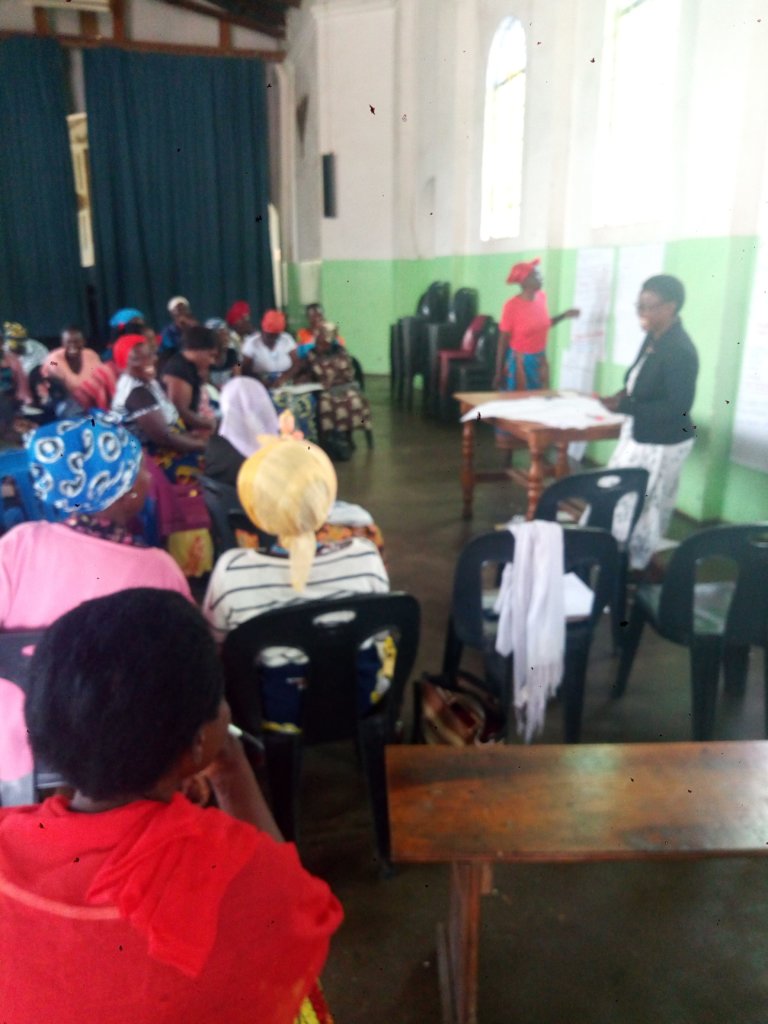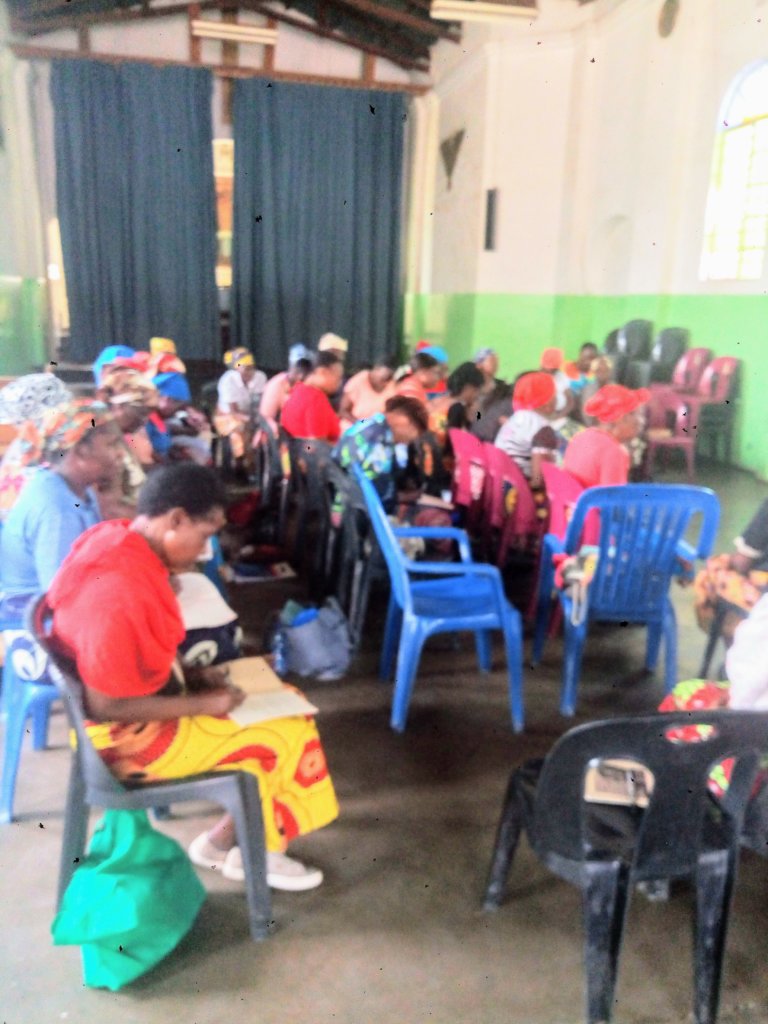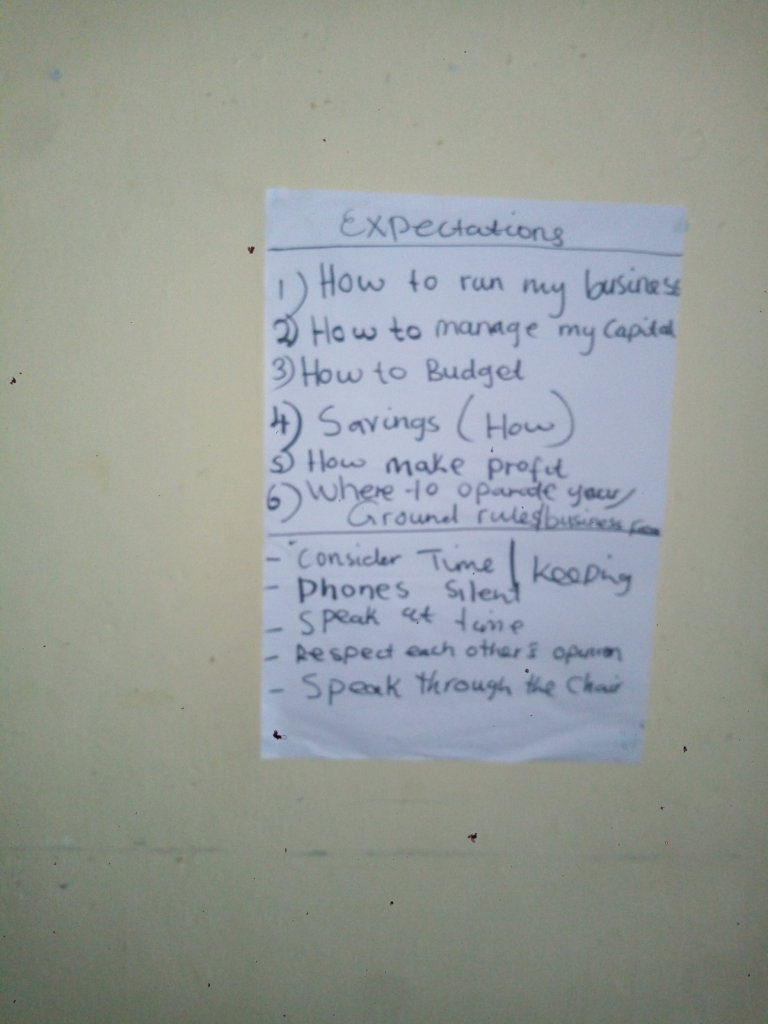By Alka Subramanian | Executive Director
Knowledge of business skills is critical to business success
We believe that knowledge of basic business skills is critical for running a successful business. As part of program activities related to our micro loans program, business training is provided to women impacted/infected by HIV and AIDS. In 2019, 309 women have been provided with business training with 100 new women being trained last month. The newly minted graduates are now equipped with business skills and ready to run more successful businesses. In addition, skills acquired during business training are permanent and can be used in diverse ways (even if the business fails) to improve one’s quality of life. For example, most women learn to save a small amount each week and become comfortable with mobile banking.
About Business training
Goals of this training are to empower women by teaching them how to (i) run a business, (ii) overcome challenges, (iii) work as a team, (iv) run a profitable business, (v) become responsible borrowers, and (vi) develop relationships of mutual support with other women.
Training is participative, hands on, and in the local language as most women have never been to school and many do not know how to read or write. In addition, most women are single and care for multiple children with few resources. Trainees get an opportunity to discuss business issues and external challenges with mentors in the same line of business. All modules are supplemented with hands on exercises, work sheets, real world examples, and group discussions. Social issues, possible challenges and how economic independence can lead to empowerment are also discussed.
Business Training Curriculum
The modules of business training are as follows:
Introduction: this helps the women understand simple business concepts as these are new to most women. Questions asked are:
Market investigation: The trainees are asked to brainstorm and come up with ideas on the kind of business they would like to start/expand, who their customers will be, location of their business, and the process of selling. They answer questions such as:
Business concepts: Quality, pricing, sourcing of materials, quantity and frequency of purchases of raw materials/inventory are discussed. Concepts such as sales, profits, price, managing money, and repayment schedules are discussed.
Costing and pricing: Cost of materials, competition, and pricing of final product are discussed. In addition, trainees are asked to think about filling a need in the marketplace and developing unique products by using their individual talents and competencies.
Selling: The concept of selling above cost and profit is introduced. In addition, ideas on how to attract and retain customers are discussed.
Money management: This module discusses the importance of bookkeeping and accounting. The women are encouraged to keep a Money Management sheet/book for their business finances. Guidance is provided on how to separate funds for capital, loan repayment, hire purchase expenses (if any), savings, and family expenses. This helps track their asset and capital growth.
Business promotion: This module covers:
Savings and banking: The women are encouraged to save a small amount each week. Information is provided on mobile/commercial/village savings bank.
Internship (pilot stages): This module may require trainees to shadow a successful business owner for a 3-4 days, so that they are exposed to the operations of a business before they launch their own.
Creation of a simple business plan: By the end of the fourth day of training the women are able to build a simple business plan that includes: location of business, where they will purchase raw materials/inventory, how they are going to set up their store, proposed mark-ups, a list of equipment (if needed), estimated fixed and variable costs, funds required to start/expand business, a profile of their customers, and how to attract/retain customers, and their goals for the next 1-2 years.
Empowerment: Social issues such as running the business when a family member is sick, are discussed followed by a Q and A.
Challenges: This module addresses challenges such as a disease outbreak, that could have severe consequences on earnings resulting in a loss of capital and savings. Participants discuss viable solutions to prevent losses.
Impact
Upon completion of business training, the women are better equipped to run businesses. Earnings from these businesses help pay for necessities and school expenses. In the short run, there is an improvement in diet and health, better information about HIV, more children can attend school and improved financial literacy. In the long run, there is a reduction in poverty, reduced stigma about HIV, women are empowered, and an improvement in gender equity.
Thanks for giving vulnerable women impacted by HIV, an opportunity to learn business skills.
Links:
Project reports on GlobalGiving are posted directly to globalgiving.org by Project Leaders as they are completed, generally every 3-4 months. To protect the integrity of these documents, GlobalGiving does not alter them; therefore you may find some language or formatting issues.
If you donate to this project or have donated to this project, you can receive an email when this project posts a report. You can also subscribe for reports without donating.
Support this important cause by creating a personalized fundraising page.
Start a Fundraiser

